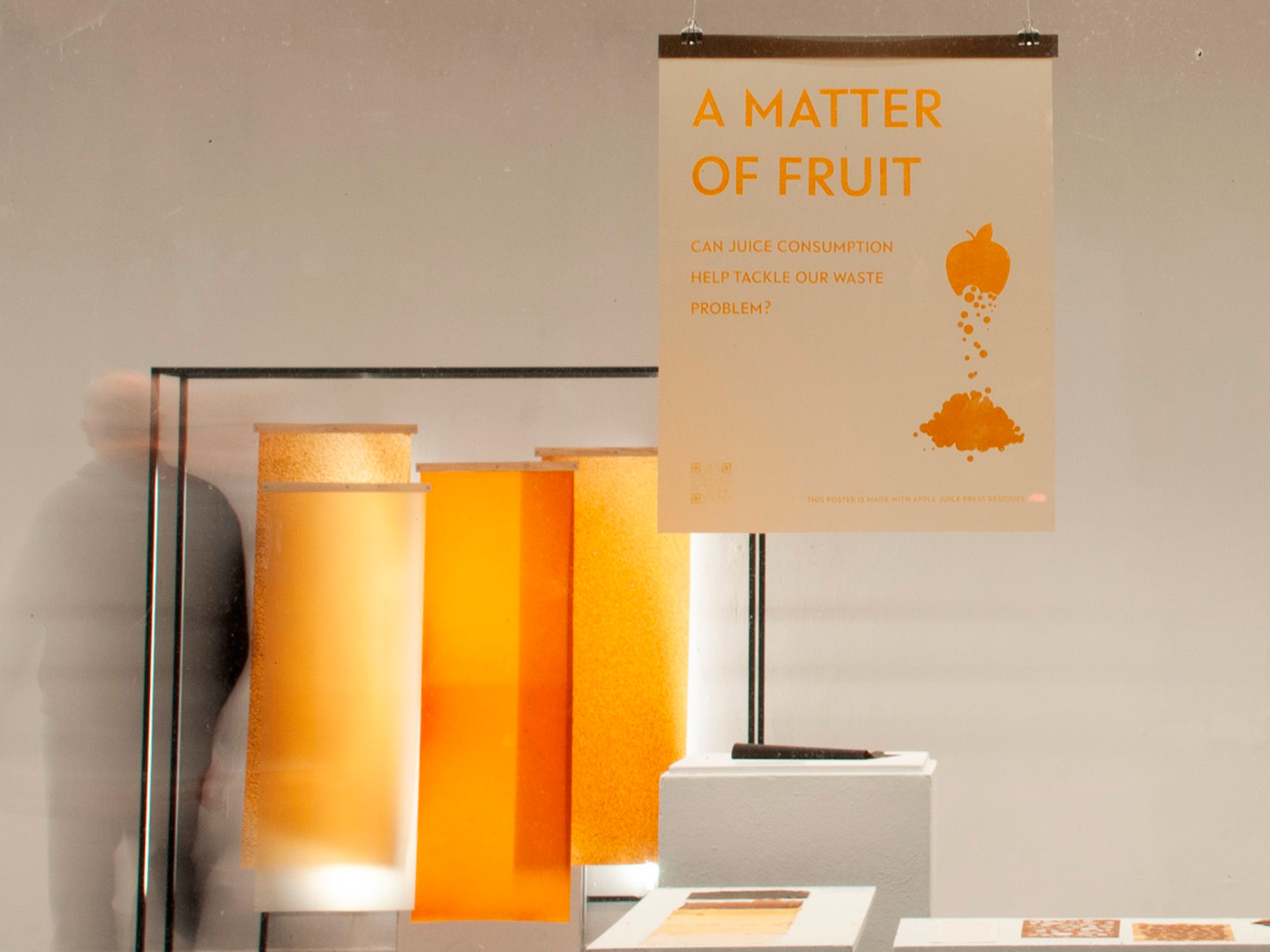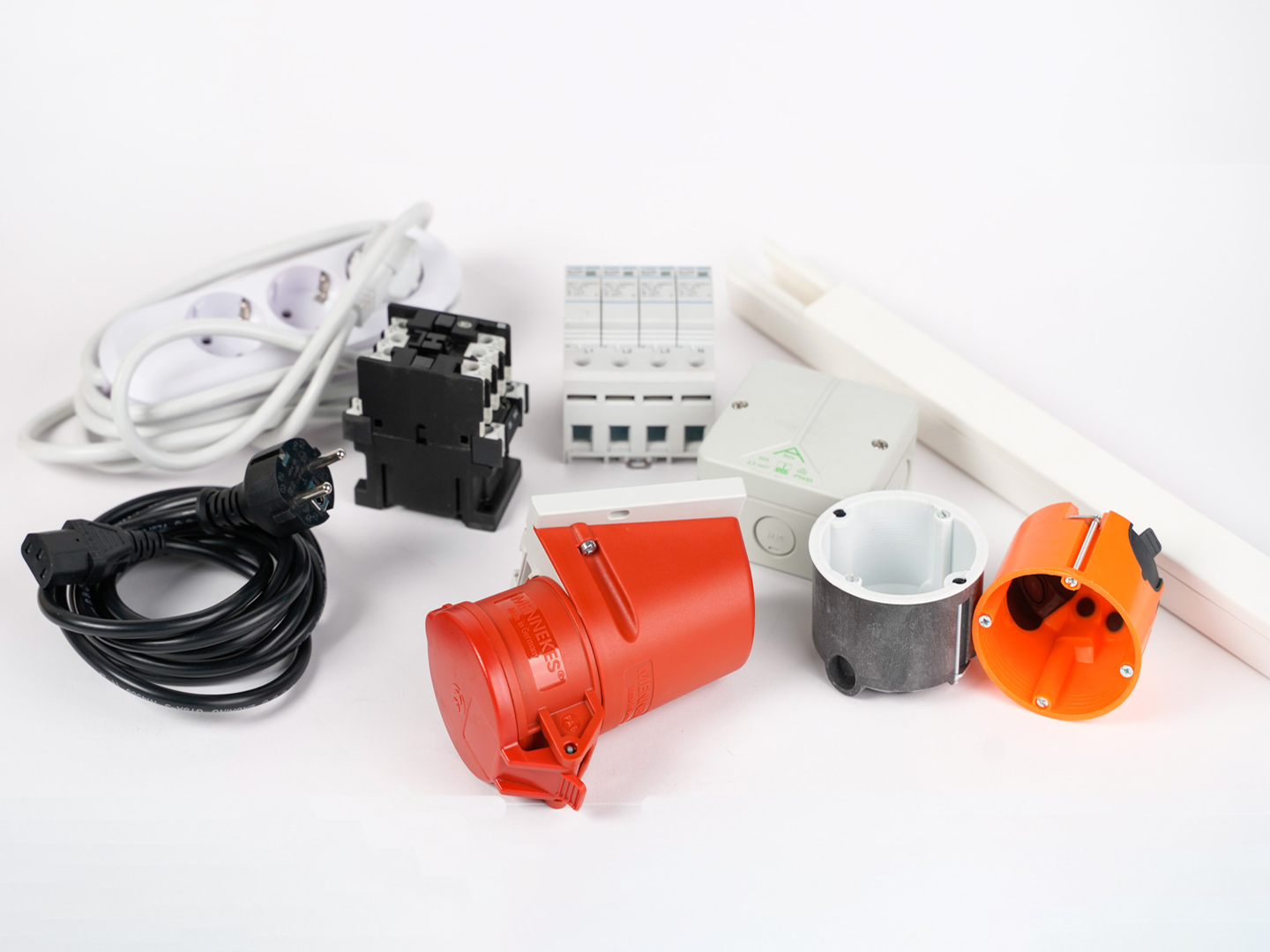Fraunhofer UMSICHT at the K trade fair
Researchers present sustainable materials for industry – from biodegradable films to specialty polymers
Whether it's films made from apple pomace, environmentally friendly flame retardants or electrically conductive polymers: Fraunhofer UMSICHT is presenting its wide-ranging expertise in the fields of plastics and the circular economy at this year's K trade fair in Düsseldorf. The researchers can be found from October 8 to 15 at the joint stand of the Fraunhofer-Gesellschaft in Hall 7, Level 0, Stand C05.



The exhibit “A Matter of Fruit” demonstrates how pomace from industrial fruit processing can be used to make biodegradable films – an alternative to synthetic materials. Depending on their thickness, the films can be classified visually and characteristically as paper, plastic, or leather and can be used in interior design as well as a substitute for leather. A special aspect of the pomace-based material is its use as a design object: Differently processed apple pomace becomes opaque to translucent, printed, shaped, or welded into a wide variety of products. Verena Brom, designer and initiator of "A Matter of Fruit", brought her start-up project for developing films made from apple pomace as well as crucial expertise into the collaboration funded by the Fraunhofer-Gesellschaft. Combined with Fraunhofer UMSICHT's expertise in continuous plastics processing, the films made from apple pomace could be produced on industrial plants.
Agricultural films with nutrients for optimized vegetable cultivation
Agricultural films are extremely useful in agriculture. They improve the growth of plants, protect the soil from drying out and minimize weed growth. In the "Humic mulch" project, a research team from Fraunhofer UMSICHT has now developed a biodegradable mulch film with humic substances that further optimizes vegetable cultivation. The nutrients contained in the mulch film are absorbed into the soil together with the film at the end of the growing season.
Bio-based flame retardant as an alternative to halogenated compounds
The causes of building, industrial or vehicle fires often lie in highly flammable home textiles or inadequately protected plastic components. This is where high-performance flame retardants (FRs) based on halogenated compounds are used. Despite their high effectiveness, FRs are increasingly being withdrawn from the market due to their toxicologically and ecologically problematic properties. Bio-based and more environmentally friendly alternatives are therefore highly relevant. In the project "Bio-Phy-FR" project, the researchers developed a bio-based flame retardant based on phytic acid for products in the textile and plastics processing industry.
Networking for a circular textile industry
2 to 10 percent of the EU's environmental impact is attributable to clothing consumption. A transformation towards a circular textile industry requires cooperation between industry, science and society. This is where the "KlarTEXt" project comes in, developing measures for a socially and ecologically sustainable textile industry and bringing all stakeholders together. The "Digital Textile Stakeholder Map" at the K trade fair shows how this networking can be activated.
Thermally and electrically conductive polymers for hydrogen applications and heating components
Another focus of the trade fair presentation is on thermally and electrically conductive polymers: UMSICHT researchers can produce ultra-thin composite biopolar sheets cost-effectively using a patented, continuous powder-to-roll process. These thermoplastic-based films can form the basis of innovative stack designs for electrolysers and fuel cells, for example: With their help, stacks can be welded and built without seals. This means that sealing elements in the stack are replaced by weld seams, which in particular reduces vulnerable sealing surfaces in the stack and thus reduces production waste. Furthermore, both the number of components in the stack and the number of stacking processes and thus the assembly effort can be reduced in equal measure. In addition to the bipolar plates themselves, a seal-free PEM electrolysis stack and seal-free PEM fuel cells will also be on display at the K trade fair.
The UMSICHT researchers will also be presenting heatable heat-shrinkable tubing at the K trade fair - an innovative alternative to the heating tapes and heating cords currently available on the market. They open up new possibilities, particularly in pipe trace heating for heat retention or frost protection in the process and food industries.
Does that sound interesting? Then make an appointment directly with our colleagues at the K trade fair please contact Dr. Joachim Danzig: Phone +49 208 8598-1145 | E-Mail.
Last modified:
 Fraunhofer Institute for Environmental, Safety and Energy Technology UMSICHT
Fraunhofer Institute for Environmental, Safety and Energy Technology UMSICHT